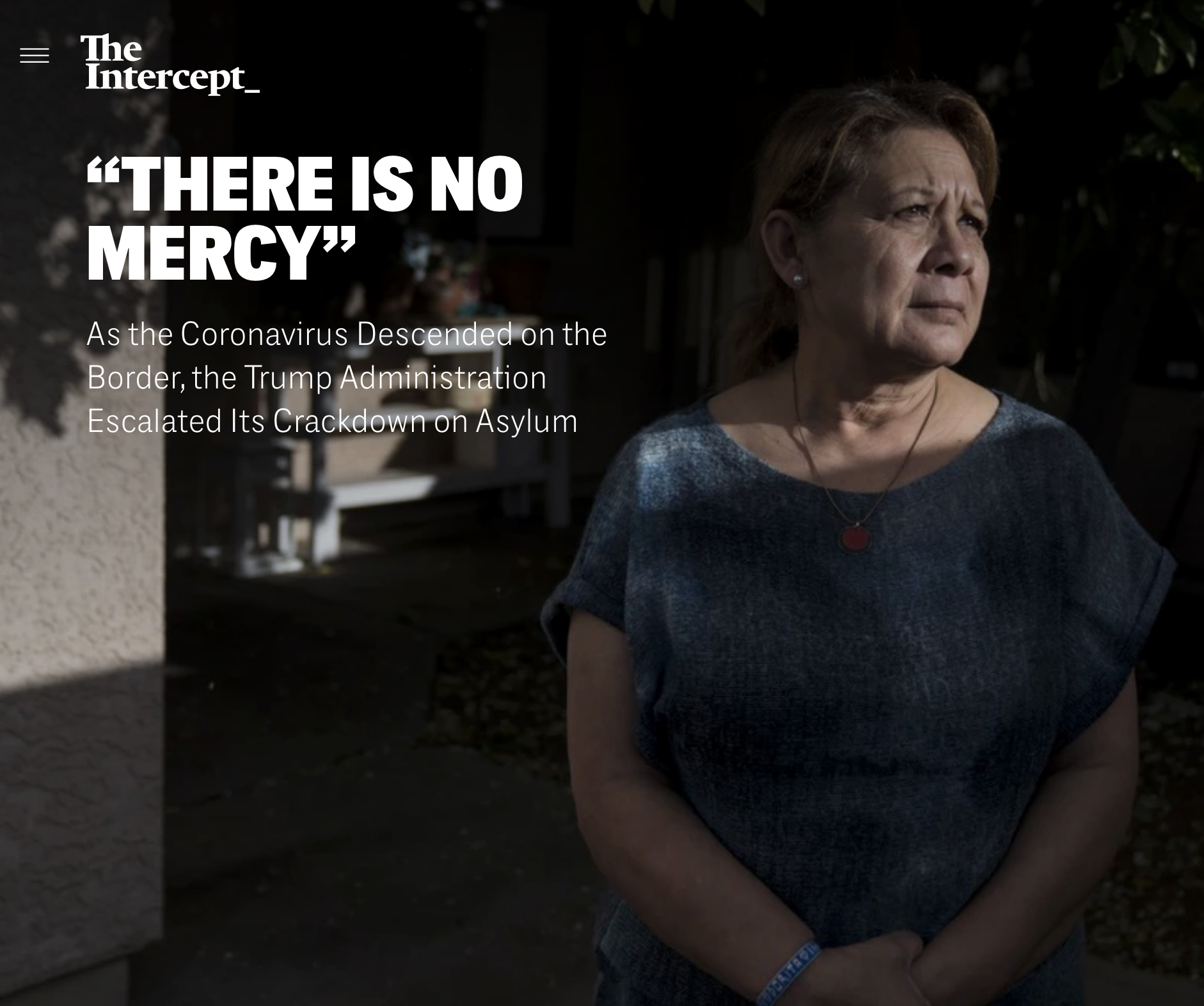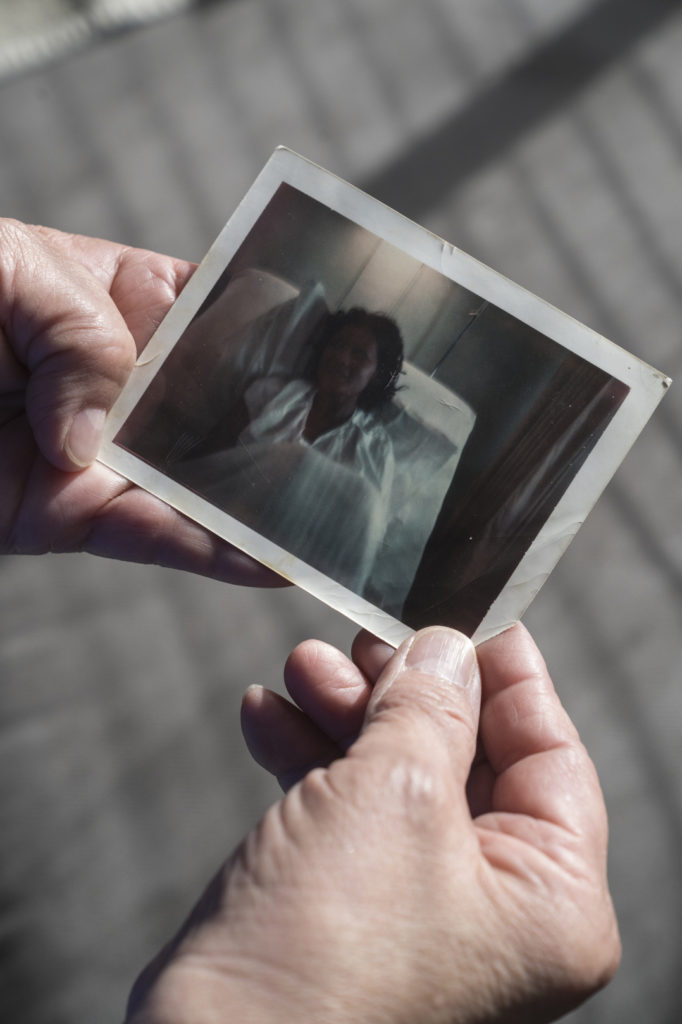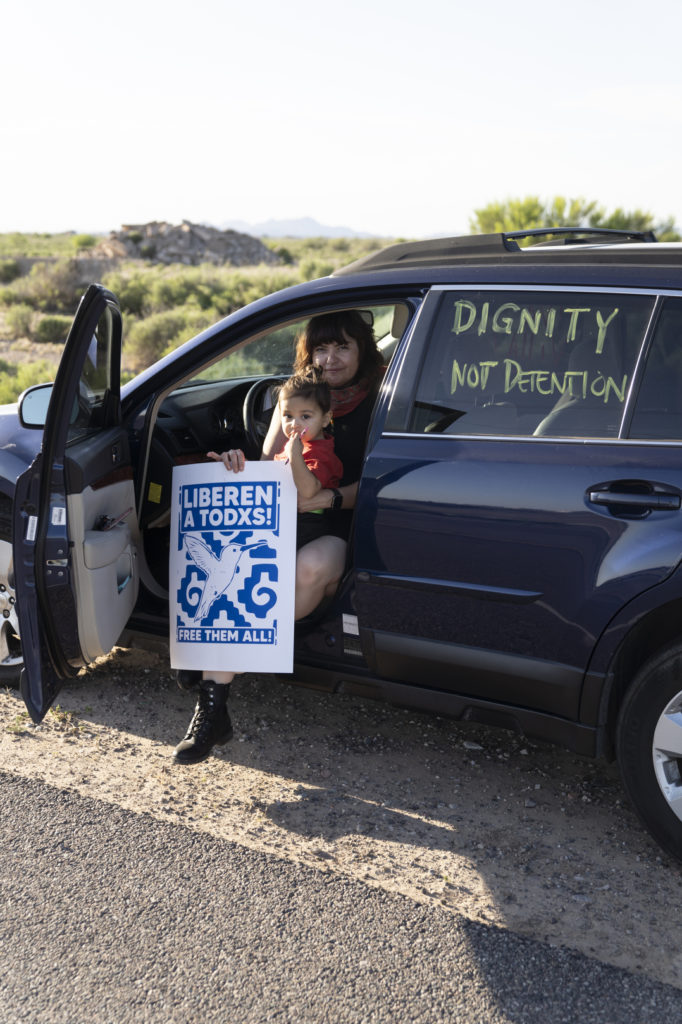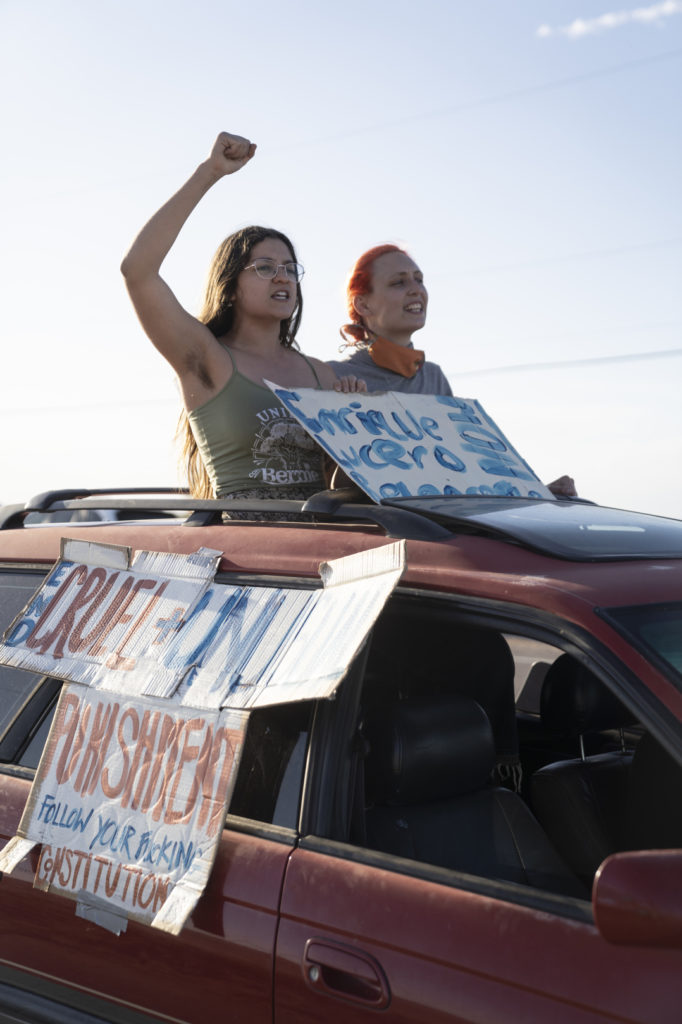
Ryan Devereaux
September 5 2020, 4:00 a.m.
Originally reported by The Intercept
A short walk from the border, in the Mexican city of Nogales, Sonora, sits a modest building packed with long, cafeteria-style tables. The comedor, as it’s known locally, is clean and inviting, with space for up to 60 guests. The walls are decorated with hand-painted images of Christ and his apostles, done in the style of a children’s book. Tucked away in one corner of the room are medical supplies, stacked and organized in plastic bins. Sister María Engracia Robles Robles, a nun with the Missionary Sisters of the Eucharist, floats from the kitchen into the common area, serving hot breakfast and lunch to anyone who needs it.

Dora Rodriguez holds the only photograph she has of herself from the days following her gruelling journey through the Sonoran desert as a young asylum seeker.
In 1980 19-year-old Dora Rodriguez, from El Salvador, made the difficult journey of crossing into the US near Lukeville, AZ on foot. Of the 26 individuals she crossed the Sonoran desert with 13 died in the gruelling heat, one of the pre-eminent events that led to the Sanctuary Movement. Dora eventually naturalised in the US and started an advocacy group, Salvavision Rescue Arizona, to support asylum-seekers. On a weekly basis Dora visits asylum seekers in detention centres, writes them letters, fundraises and brings donated supplies to the migrant camps on the Mexican side of the US – Mexico border.
Photo by Kitra Cahana/MAPS for The Intercept

Photo by Kitra Cahana/MAPS for the Intercept

Photo by Kitra Cahana/MAPS for the Intercept
The comedor was born out of work Robles and two other nuns began in 2006. At the time, Arizona was the epicenter of migration along the border and the site of a major humanitarian crisis. While people headed north were dying in the desert in record numbers, a growing deportation machine was sending a steady flow of survivors to Nogales. The nuns began feeding the deportees out of the trunks of their cars. In 2008, they secured the property where the comedor now stands. Officially run by a coalition of organizations known as the Kino Border Initiative, its first iteration had no walls. There was no relief from the desert heat. When the monsoons came, the nuns walked through standing water to serve food.
